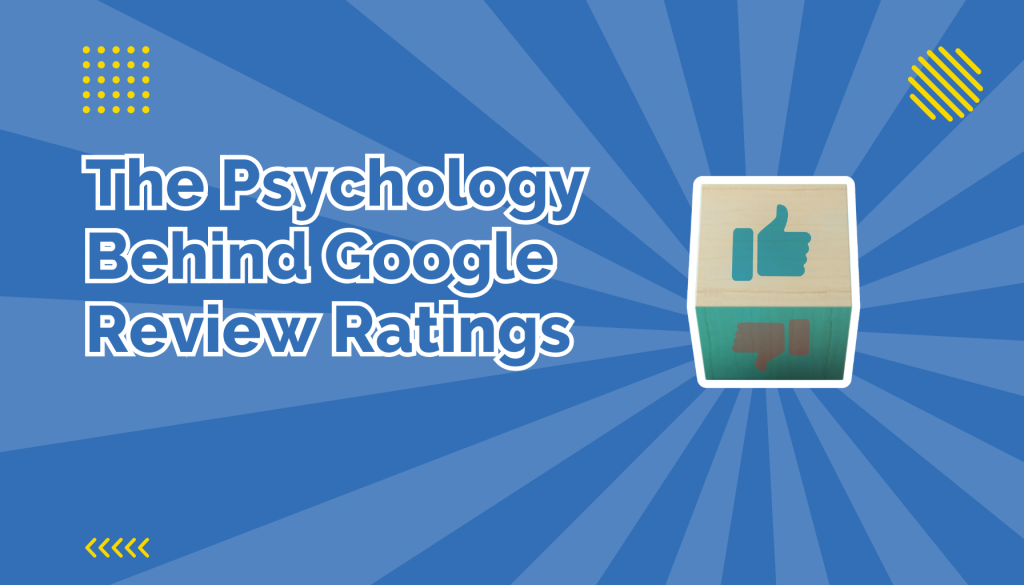Google reviews have become an integral part of the consumer decision-making process. Reviews influence public perceptions and are a driving factor in determining a business’s online reputation. The psychology behind Google review ratings is a fascinating study of human behavior, revealing how various psychological factors drive individuals to leave positive or negative feedback. Understanding these underlying motivations can help businesses improve customer satisfaction, manage their reviews and prevent negative Google reviews.
The Power of Social Proof
Social proof is a psychological phenomenon where people assume the actions of others reflect correct behavior for a given situation. In the context of Google reviews, potential customers often look to others’ experiences to guide their decisions. A business with numerous positive reviews benefits from increased trust and credibility, as these testimonials serve as credible endorsements. Conversely, negative reviews can deter potential customers, as they signal a risk of having a similar bad experience. This underscores the importance of managing customer experiences proactively to encourage positive reviews and mitigate negative feedback.
Cognitive Bias and Decision Making
Cognitive biases significantly influence how individuals interpret and leave Google reviews. Confirmation bias, for example, can lead customers to seek out reviews that validate their preconceived notions about a business. Once their expectations are confirmed through others’ experiences, they are more likely to contribute similarly aligned reviews. This tendency highlights the critical role of first impressions and consistent service quality in shaping overall customer perceptions and the resulting reviews.
Emotional Responses and Their Impact
Emotions play a crucial role in the decision to leave a review. Customers often leave reviews when their experience evokes strong emotions, whether positive or negative. Positive experiences that exceed expectations can lead to glowing reviews, as customers feel compelled to share their joy and satisfaction with others. On the flip side, negative experiences that evoke feelings of frustration or disappointment are equally likely to prompt reviews, as customers seek to express their discontent and warn others. This emotional drive underscores the need for businesses to manage customer experiences carefully, ensuring that any potential issues are resolved promptly to avoid negative reviews.
The Influence of Reciprocity
The principle of reciprocity – the social norm of responding to a positive action with another positive action – plays a significant role in the psychology behind Google review ratings. When customers feel valued and appreciated by a business, they are more likely to reciprocate by leaving a positive review. Small gestures, such as personalized thank you notes or follow-up messages, can significantly impact customer satisfaction and encourage positive feedback. This reciprocal relationship highlights the importance of going above and beyond in customer service to foster a positive online reputation.
The Dilemma of Negative Reviews
Negative reviews are an inevitable aspect of doing business. However, they offer an opportunity for growth and improvement. Constructive criticism can provide valuable insights into areas where a business can improve its products or services. Additionally, how a business responds to negative feedback is crucial. A thoughtful and professional response can turn a negative situation into a positive one, demonstrating the company’s commitment to customer satisfaction. It’s also worth noting that businesses have the option to remove Google reviews in certain circumstances, such as when the reciews violates Google’s review policies, but this should be considered a last resort. The focus should instead be on addressing the root causes of customer dissatisfaction.
The Role of Social Identity
The concept of social identity theory explains how individuals categorize themselves and others into various social categories, such as social, religious, or corporate groups. This categorization process influences behavior and attitudes toward others, including how reviews are written and interpreted. Customers may be more favorable in their reviews of businesses that align with their social identity or values, reflecting a sense of loyalty or belonging. Conversely, businesses that are perceived to contradict one’s social values are more likely to receive critical reviews. This highlights the importance of businesses being aware of and responsive to the broader social and cultural context they operate in.
Understanding Factors that Influence Customer Feedback
The psychology behind Google review ratings offers invaluable insights into the complex interplay of factors that influence customer feedback. Understanding these psychological underpinnings can help businesses navigate the challenging terrain of online reviews more effectively. By focusing on creating positive customer experiences, responding thoughtfully to feedback, and understanding the emotional and cognitive biases at play, businesses can cultivate a positive online reputation that attracts and retains customers. In an era where online presence is crucial, mastering the psychology behind Google review ratings is an essential strategy for success.
Remove negative Google reviews today
Guaranteed Removals Google Review Removal Service
Related Articles
Google Review Removal: Process, Policy & Insights
- How to Remove Google Reviews (Step-by-Step Guide)
- How Long Does It Take to Remove a Google Review?
- How Much Does It Cost to Remove a Google Review?
- Removing Fake Google Reviews: Strategies
- Successful Google Review Removals
- How Does Google Decide Whether to Remove a Review?
- What Types of Google Reviews Can Be Removed?
- How to Appeal a Google Review Removal Denial
- Understanding the Google Review Removal Policy

